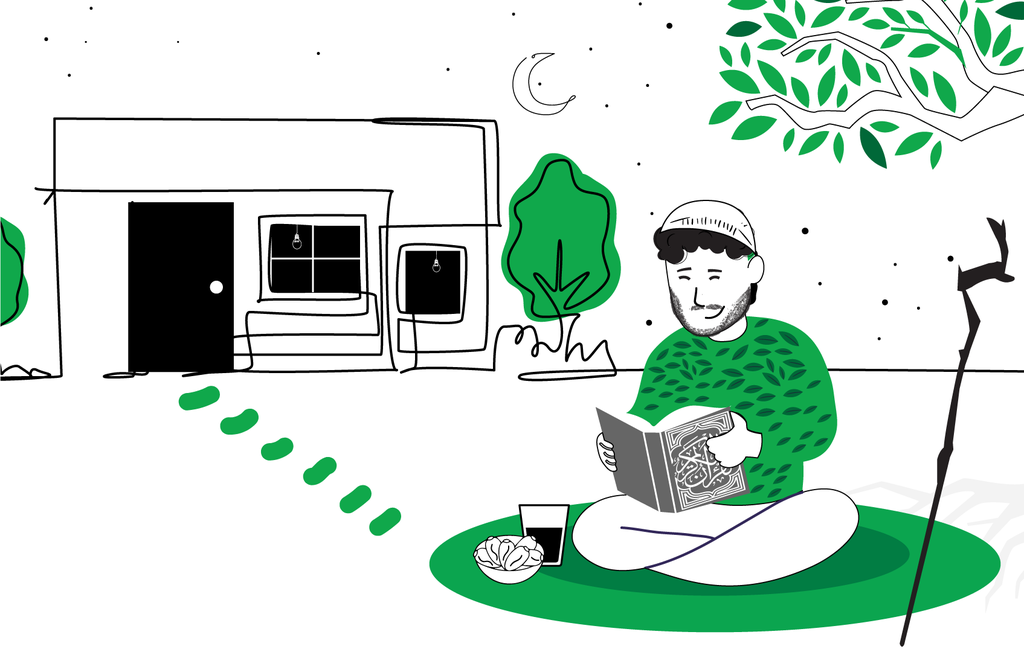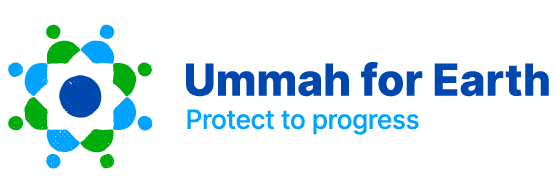
Allah has created the planet with a specific balanced system for us to live in and prosper. Surah Ar Rum (30:30) highlights the importance of preserving this system and warns humanity against the unbeknownst damage that they are causing to the natural balance that exists in the universe. The system that Allah has created for us is essential- it provides us with the air we breathe, the water we drink, the food we eat and countless other blessings. However, it is imperative that we do not take these blessings for granted and acknowledge the ways in which our collective lifestyles are causing damage to the planet by disturbing the natural balance of the world
Globally, overconsumption of food and other resources is destroying the planet, it is increasing the rate of climate breakdown and creating more air pollution. It is exhausting the planet’s life support
systems like the ones that provide us with fresh water, leaving us short of materials critical to
our health and quality of life.
The Lessons of Ramadan
Allah Almighty chose the blessed month of Ramadan to surround us with His countless blessings and to appreciate His bounties. Ramadan empowers worshippers to focus their minds on the devotion to their faith through prayers, expressing gratitude, seeking forgiveness and helping the needy. In this month we have a greater urge and desire to perform good deeds. However, in this era of modernity, the focus seems to have shifted from the vast benefits of fasting to a more materialistic outlook, for example, what to buy, where to eat and how much to eat. In Ramadan, we tend to become more extravagant when it comes to food and the use of resources. Wastage levels escalate due to a variety of factors ranging from a commercialisation of the holy month to the generosity of hosts who produce too much food for events.
As Muslims, we should work towards the conservation of Earth’s ecosystems, ensuring the sustainability of natural resources for future generations, while maintaining a balance between
humans and nature. The Prophet (saw) emphasised that the act of giving up food and drink loses its significance without personal mindfulness and evaluation.
“How many fasting people are there whose fasts consist of nothing but hunger and thirst?”
(Ihya Ulum al Din – Book of fasting)
Essentially, Muslims are encouraged to reflect on this question: what is the point of the physical act
of fasting if our actions and words go unchanged? While there are many values that Muslims strive
to adhere to in their daily lives, the values of environmental consciousness and stewardship should be particularly relevant during the blessed month of Ramadan.
Consumerism & Ramadan
Unfortunately, the consumer world is taking advantage of Ramadan and Muslim’s are falling into this trap. There are countless ahadith about how we should use the months of Rajab and Sha’ban to prepare for the blessed month but are we really following this advice?
The months in which more focus should be shifted towards spirituality and devotion to Allah, seem to have become more about buying power. The corporates are taking control of us and are easily able to influence us inadvertently making Ramadan a commercial exercise.
A Guide to an Eco Conscious Ramadan
As part of efforts to educate and empower the Muslim community, I have developed ‘A Guide to an Eco Conscious Ramadan’ to help us with our thought process, to make better climate friendly choices and to recapture the true essence of Ramadan. The guide goes beyond just food and drink and has some wonderful guidance on waste management, water conservation, transport, charitable giving, the power of prayer, how the Prophet (saw) fasted and much more. My inspiration for creating this is my religion of Islam, which is inherently environmental and shows concern for everything around us.
As Muslims we have been given the role of stewards, therefore we have a huge responsibility to protect our natural resources. Let us use the blessed month of Ramadan (and the eco guide) as a catalyst for showing responsibility in our consumption and for everlasting changes towards a better and environmentally sustainable future.
Download the guide and learn more on how to experience an eco-conscious Ramadan here.
